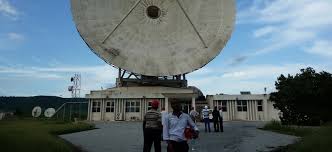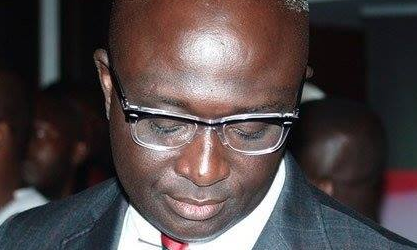Ghana to launch first satellite in 2020

 Ghana is to launch a space satellite in the next five years near the Equator for earth observation.
Ghana is to launch a space satellite in the next five years near the Equator for earth observation.
To be flagged under the name Ghana Satellite One (GHANASAT 1), it will be the first earth observation satellite in the orbit in the West African sub-region.
The three-phase project, being championed by the Ghana Space Science and Technology Institute (GSSTI) under the Ghana Atomic Energy Commission (GAEC), with technical support from MENASAT?Gulf Group PLC, is projected to facilitate economic planning and management of resources.
MENASAT Gulf Group PLC is the developer of the Gulf Satellite which provides real time imagery to the Middle East, North African and South East Asian regions.
The first phase will include the building of a modern space data centre, while the second phase will ensure that Ghana has a direct receiving station for harvesting space information by 2020 and the final stage will involve the launch of the space satellite. Benefits
At a stakeholders meeting in Accra to begin the project, the Director-General of GAEC, Mr Benjamin Jabez Nyarko, said the satellite would help Ghana to take advantage of the space technology to boost economic development.
“Satellite data will provide information for the planning and management of the economy. When you are in space, you see things clearly.
“Satellite information will help address issues of security, risk management, maritime, forest depletion, water problems and others challenges.
“In recent times, we have seen a significant increase in space activities which countries are taking advantage of. Every developed nation has taken science and technology seriously. Ghana cannot afford to miss out on space science technology,” he said.
The Director of GSSTI, Professor Dickson Adomako, in his welcome address, said space science and technology had enormous benefits.
He said there were plans to team up with the Ministry of Food and Agriculture (MOFA) and the Ministry of Communications to use satellite information to boost the agricultural sector.
“With the collaboration of the communication networks, we could send information through text messages to farmers in the rural areas on when to start planting,” he said.
He said with the satellite, Ghana could also monitor oil spillage in the oil and gas sector to save the environment. Response to emergency
Dr Nana Ama Brown Klutse, the manager of remote sensing and climate centre at GSSTI, said some institutions in Ghana had already signed agreements with international agencies for the sourcing of satellite data “but the project will make it possible to access such information locally.”
Sounds interesting! We all can’t wait!


